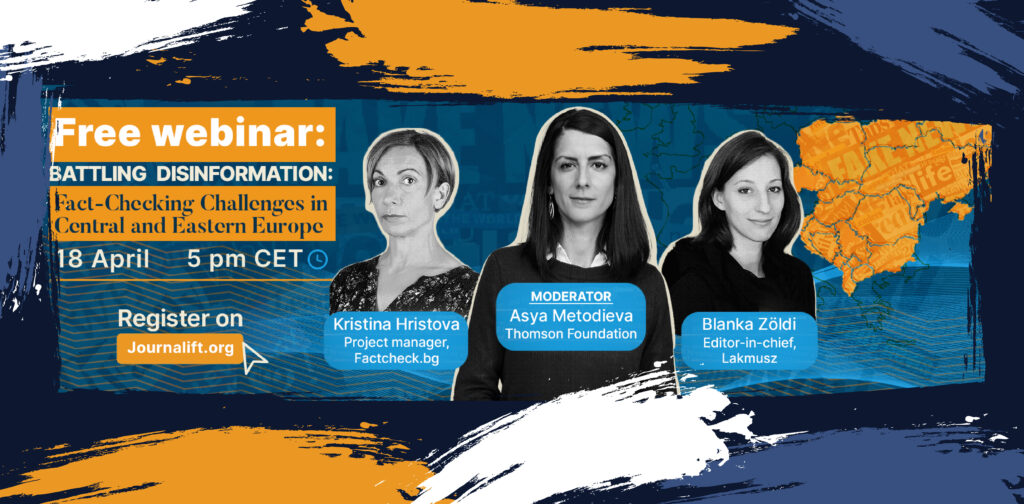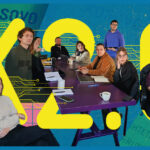Podcasts are the fastest growing content delivery channel in the last few years. However, there seems to be a growing gap between the radio industry and podcasters. By commercializing radio in the Balkan region, in the Balkan way, which mostly means “formatting” (I wanted to write “freaky formatting”, and I wouldn’t want anyone to be offended; the format is certainly not making playlists and boring, impersonal music announcements by uncreative presenters – we will talk about the formatting of radio stations on another occasion) many radio people are forced to find other jobs. A large number of them went to podcasters.
Should it be like that? And will podcasts kill radio or are they radio 2.0? In this text I will try to explain why we should still be on the same page.
The beauties of podcasts

A podcast as such is a free form, and in the narrowest sense of the meaning (a coin created from POD - Personal On Demand and broadCAST) is an audio file that can be downloaded and listened to whenever it suits the listener. According to their form, there are really different types:
- Solo podkast
- Interview/conversation
- Panel/round table
- Show (magazine, collage)
- Show with two or more presenters
- Live (I wouldn't call this a podcast, but we'll definitely pay attention to that too)
A solo podcast is suitable for content producers, influencers and educators. An example of this is a stand-up comedian who promotes his performances through a podcast. Likewise, there are great scientists who do educational podcasts - which aren't lectures like they give in college, but are scientifically sound and aimed at a wider audience.
An interview is the most widespread type of podcast in the whole world. In our region, it is by far the most numerous and has slightly threatened the others - anyone who wants to start a podcast thinks that an interview is the same as a podcast. Unlike solo podcasts, here the guest is the central figure. An interview and a conversation are not the same. In conversations, the host plays an equally important role as the guest and is often more interesting to listen to than the interview.
A panel/roundtable is a great podcast to listen to and can easily grow into fantastic content. It is complicated for production.
A show is a more colorful podcast format. It requires a lot of time, knowledge and is difficult to prepare independently.
A show with two or more presenters is deliberately a separated category, because it represents almost the crown of production and preparation. It is extremely demanding in the production segment, and probably even more demanding in preparation.
A live program - according to the meaning of podcast, live cannot be a podcast. Each of the mentioned categories can be done live. But, when the integral version remains online, as a podcast episode, we return to the definition, so I decided to mention that as well. Why does live matter? There is no right to make a mistake. Ok, there is, but then it spoils the overall picture of the episode, or it has to be fixed in the editing. It has that real-time interactivity.
The beauties of radio

Radio is a traditional media, as everyone perceives it. However, I could not possibly agree with such a claim. A good, modern radio today is both digital and firmly positioned in accordance with the time and space in which it is located, so in Great Britain there is Podcast FM, a radio that based its program on podcasts.
Not so long ago, when the Internet became available to a wide audience, radio people uploaded recordings of shows to long-forgotten angelfire, geocities, myspace and similar platforms, but they did not call them podcasts.
Radio also has many formats. There are AC (adult contemporary), music, CHR (Pop Contemporary Hit Radio), folk (country, the most popular in America), talk (news/talk/info), Rock, Oldies and many others. These are the most popular. In our region, listenership is still not defined, so we don't have clearly profiled radio stations either, because most people "like a variety of music".
Unlike podcasts, radio is clearly regulated. I know, there is also a much freer, online radio, which is generally not subject to the scanner of the competent institutions. There are also podcasts somewhere - quite free, and still insufficiently legally defined.
The difference between radio and podcasts

While radio strives to capture as many listeners as possible (read also 10 tips for local radio stations), podcasts generally do not have that goal. There is a certain group of genres that "run the radio race for listeners", but the majority of podcasts, due to their free form, go into the smallest details, interviews and conversations go into "hard talk", and that's exactly what listeners want. That's why they dedicated themselves to an episode.
On radio, especially commercial radio, there is not enough time and not enough listeners who pay attention. The listening habit is different - I want to listen when I want and what I want at that moment. This is possible with podcasts, but not with radio programs.
We're on the same page

Many radio stations started their own podcasts, many podcasters ended up on radio stations, because everyone saw that we were the same team. People consuming audio content are on the rise. And while AM and FM radio listenership is falling, podcast listeners are growing, as are those using streaming services for music consumption. On average, as I already wrote, the number of listeners is continuously growing year after year, only those listeners are moving from one audio platform to another. It is radio that has to change a lot to survive.
Podcasts are here, they're friendly to the radio industry, they're all on the same page together. The media business is changing day by day - it has faced a major problem of how to attract a young listening population in addition to streaming services, podcasts and online content. Podcasters have a big problem being discovered, they often don't know how to promote themselves, and therefore monetize (Ivan Minic guides you through the most important questions you should answer before starting a podcast). And when we draw the line - podcasts need a radio, radio needs a podcast.
Instead of the conclusion:

- Listeners are waiting for you to attract them, whether you're a radio personality or a podcaster. They want good and quality content.
- Start thinking about how you can be better, analyze your content, but also get to know your competition.
- The competition should be healthy. This means that you don't trip over each other, but that we all work together to make the marketing cake for radio and podcasts bigger and bigger.
- Create a winning strategy.
- Be careful about the content, when and how you share it. Invest in your content, because content costs money. Promote it.































